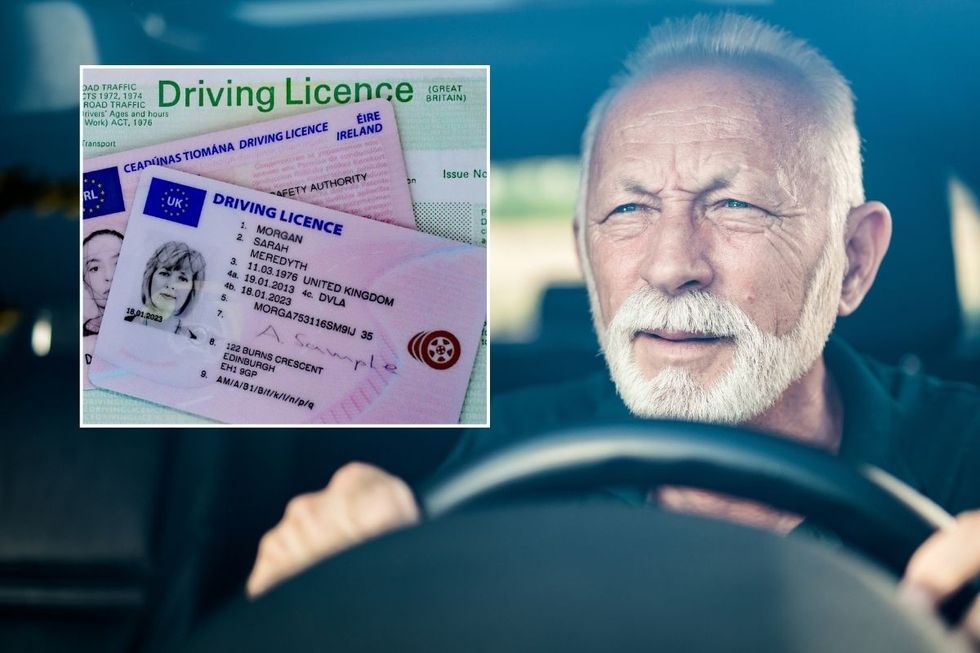WATCH: The panel debates whether elderly drivers need more support on the road
GB NEWS
'Drivers should not be banished from the roads, solely because of their age – this is not what makes someone unsafe to drive'
Don't Miss
Most Read
Trending on GB News
Elderly drivers are being encouraged to speak with medical professionals if they are not confident behind the wheel amid calls for older people to face compulsory fitness requirements.
There are no current restrictions on elderly motorists in relation to giving up their licences at a certain age, although they must renew their licence every three years, rather than every 10 years.
There have been growing calls for older people to face additional testing to obtain a driving licence following a high-profile crash in which a 91-year-old killed a three-year-old after pressing the accelerator instead of going in reverse.
Craig Delahaye, Associate Director of Legal Operations at National Accident Helpline, spoke to GB News about the need for motorists to make sure they are still safe behind the wheel.
Do you have a story you'd like to share? Get in touch by emailingmotoring@gbnews.uk

An expert has called for elderly drivers to acknowledge when they may no longer have the fitness to drive
PA/
He outlined how older motorists should ensure they are in fit shape to drive confidently and safely or they should take steps to remove themselves from the road.
Motoring experts consistently encourage drivers to speak with their GPs if they have any concerns about their own driving ability, especially if they have any impairments.
The expert added: "Drivers should not be banished from the roads, solely because of their age – this is not what makes someone unsafe to drive.
"Certain medications, loss of eyesight, mobility problems or a lack of understanding of current rules of the road are just some examples of what puts fellow road users at risk – and driving with these impairments is what needs to be stopped."
He noted that any of the conditions mentioned should be reported to the DVLA immediately as this could impact their ability behind the wheel.
This follows the case of Edith Duncan, 91, who "lost control" of her vehicle in Edinburgh four years ago. The vehicle mounted the pavement, killing three-year-old Xander Irvine and striking his mother, Victoria.
A newly released report stated that Duncan should have had her licence revoked due to her cognitive impairment and her frontotemporal dementia.
It highlighted how she would have been stripped of her licence by the DVLA if she had undergone a further assessment since she was unfit to get behind the wheel.
Sheriff Principal Nigel Ross, who wrote the report, said the present system of self-certification of fitness to drive needed to be changed as a "priority" for those over 70.
The fatal accident inquiry recommended that any application for renewal by drivers over 80 should not be granted unless the applicant driver has successfully undertaken a "short initial cognitive assessment".
Reacting to the fatal accident inquiry, the DVLA said it would "carefully consider" the Sheriff's recommendations, maintaining that road safety was always the priority.
A spokesperson for the Agency said: "All drivers must ensure that they meet the medical standards for driving and notify us of the onset or worsening of a medical condition affecting their ability to drive."
LATEST DEVELOPMENTS:

Xander Irvine was struck and killed by an elderly driver with frontotemporal dementia in 2020
POLICE SCOTLANDDelahaye concluded, saying: "While drivers are permitted to renew their driving licence when they turn 70, and every three years following, there are no other mandatory practices in place."








